
Why Learn Next.js in 2025? The Ultimate Guide for Career Growth
The web development world is evolving faster than ever. Every few years, a new framework or library emerges, promising to be the ultimate solution for building modern applications. For developers, this often creates confusion: Should I learn Angular, Vue, Svelte, or stick with React?
At Nexotips Infotech, after years of working with different frameworks, we strongly recommend learning Next.js in 2025. It’s not just a trend—it’s becoming the industry standard for scalable, SEO-friendly, and high-performance web applications. In this blog, we’ll explain why Learn Next.js in 2025, how it compares with Angular, and why it stands out among other frameworks.
Table of Contents
1. Next.js built on React
Next.js is not an entirely new language; it’s a framework built on top of React. Since React is the most popular JavaScript library in the world, learning this framework means you’re building on a foundation already in demand.

Angular, while powerful, requires mastering concepts such as RxJS, dependency injection, and decorators, making it more challenging for beginners. With Next.js, if you already know React, the transition is smooth and efficient.
Start with React official do React cumentation before moving into Next.js.
2. Simplicity Over Complexity
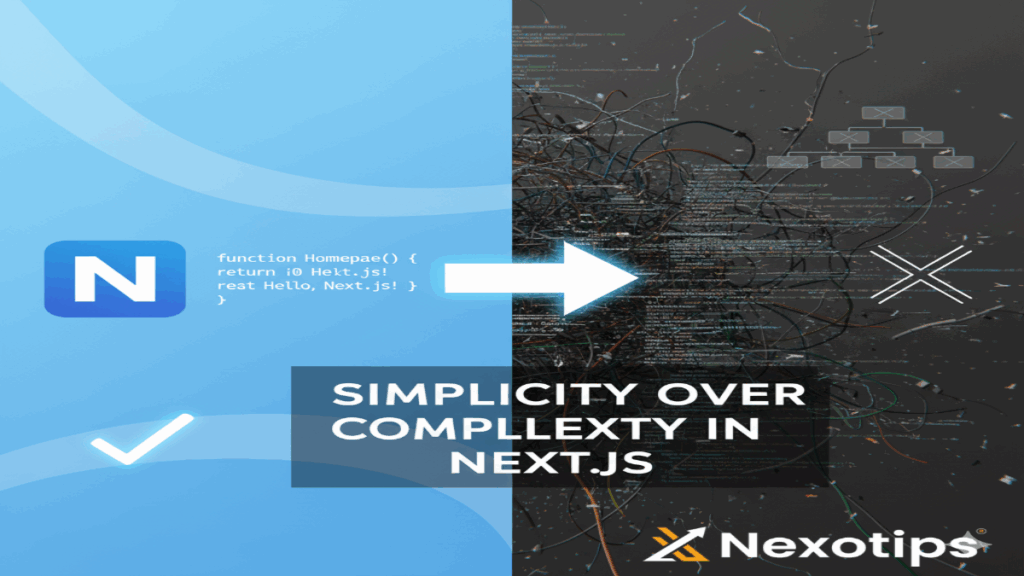
Angular is feature-rich but often overwhelming. Developers need to handle configurations, module systems, and a heavy learning curve before writing meaningful applications.
Next.js, by contrast, focuses on developer experience. Its file-based routing, built-in SSR, and minimal setup let you start quickly. This simplicity saves time and boosts productivity, which is why many companies—including Nexotips Infotech—prefer it for client projects.
3. SEO and Performance

In today’s digital landscape, SEO and performance have a direct impact on business success. A slow site loses visitors, and poorly optimized pages fail to rank on Google.
Next.js solves this with:
- Server-Side Rendering (SSR) – pre-renders pages on the server.
- Static Site Generation (SSG) – builds pages at compile time.
- Automatic image and script optimization.
Angular applications can achieve good performance too, but often require manual adjustments, whereas Next.js gives you SEO benefits out of the box.
Explore the Next.js SEO guide for practical examples.
4. Full-Stack Capabilities

One reason we love this framework at Nexotips Infotech is that it’s not limited to frontend development. With API routes, developers can write backend logic inside the same project. This means you can create a full-stack application with one framework—something Angular doesn’t provide natively.
For startups and businesses, this results in faster delivery and reduced dependency on multiple tools.
5. File-Based Routing
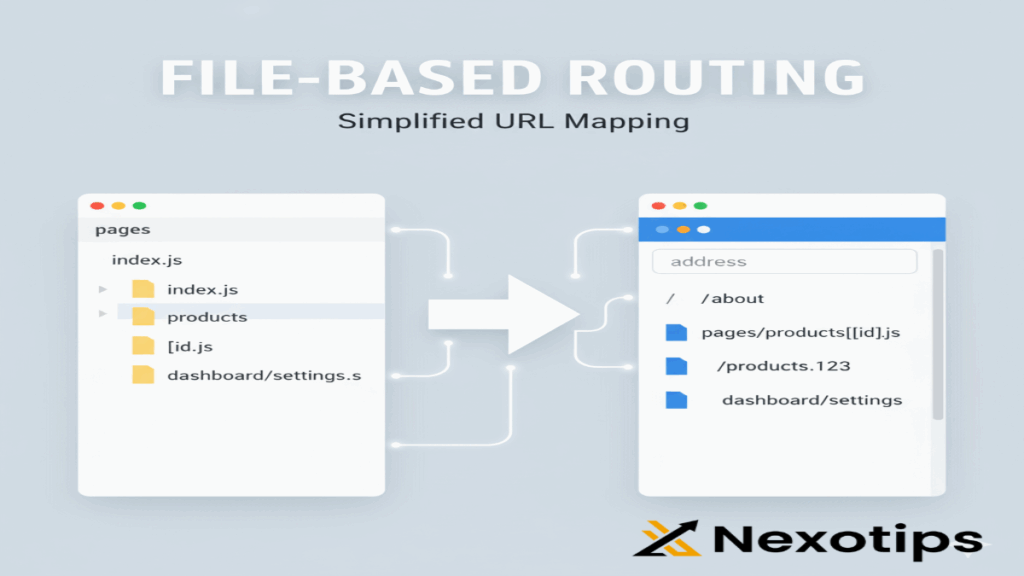
Routing in Angular requires setting up modules and configuring paths, which can be complex for newcomers. This framework uses a file-based routing system: every file inside the pages/ folder becomes a route automatically. This simple approach makes development smoother and reduces bugs, especially for large applications.
Learn more in the Next.js Routing documentation.
6. Community and Ecosystem
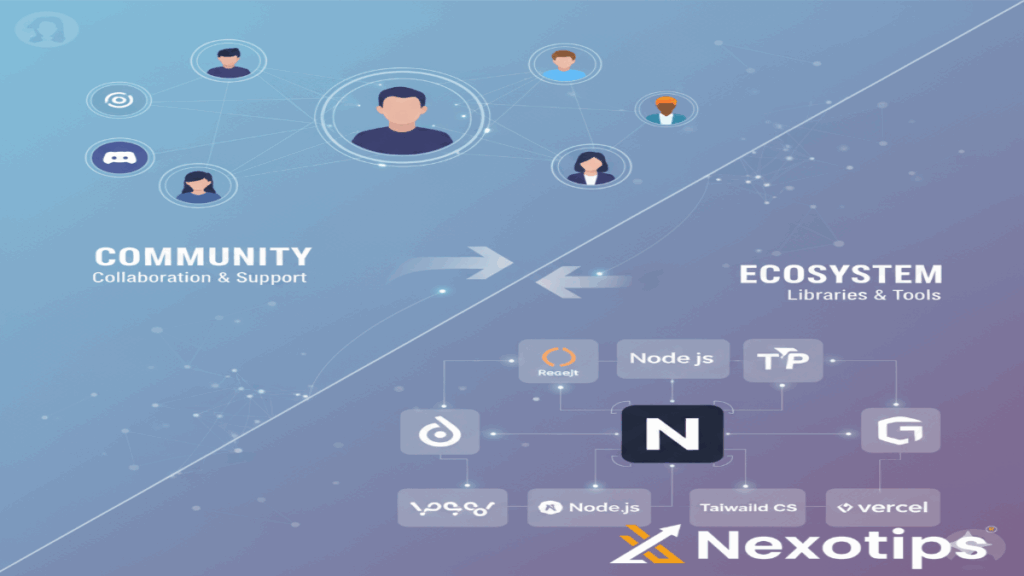
Angular is backed by Google, but its popularity has declined compared to React and React-based framework. The global developer community leans heavily toward React, and React-based framework is benefiting from this ecosystem. There are thousands of tutorials, open-source tools, and plugins for this framework. If you face an issue, chances are someone has already solved it. This active ecosystem makes learning and working with this framework much easier.
7. Developer Experience

A framework should make developers happy. It does exactly that with:
- Hot reloading for instant updates.
- TypeScript support for stronger applications.
- Image optimization built in.
- A minimal configuration compared to Angular’s extensive setup.
At Nexotips Infotech, our developers appreciate how Next.js allows them to focus on problem-solving rather than boilerplate coding.
8. Industry Adoption
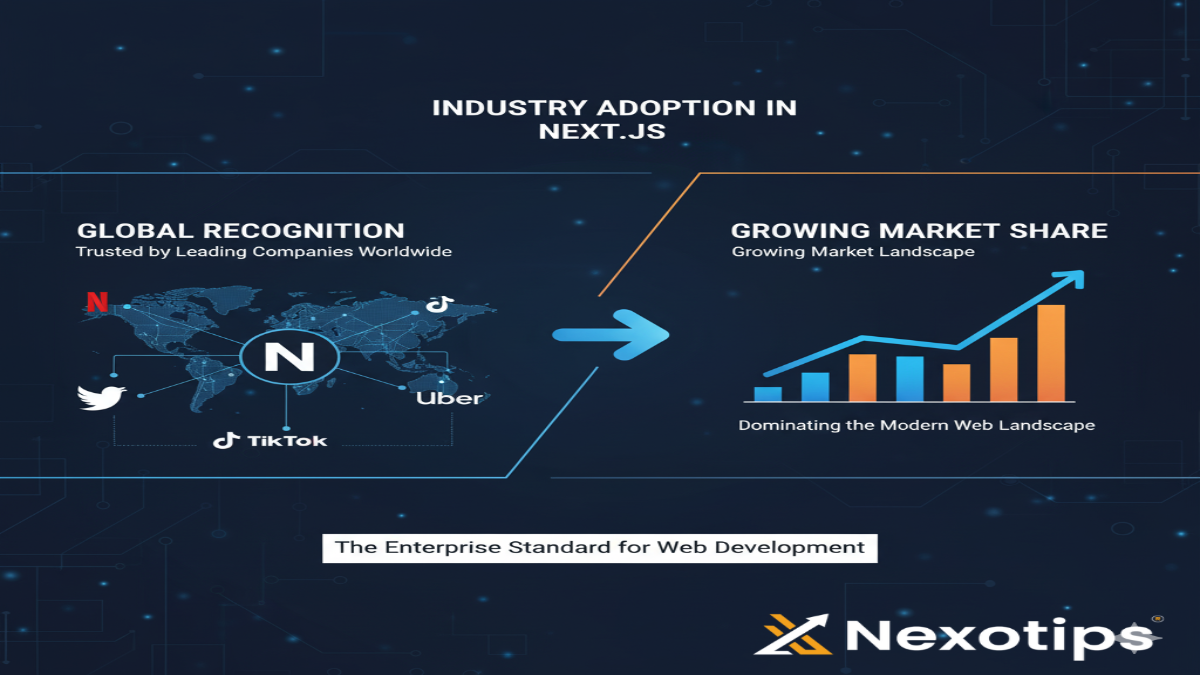
This framework isn’t just popular among freelancers and small teams—it’s trusted by global enterprises. Companies like Netflix, TikTok, Uber, Nike, and Twitch use Next.js to power their platforms.
When industry leaders adopt a technology, it signals long-term stability and job opportunities. Angular, while still in use, doesn’t command the same enthusiasm in 2025.
9. Career Opportunities
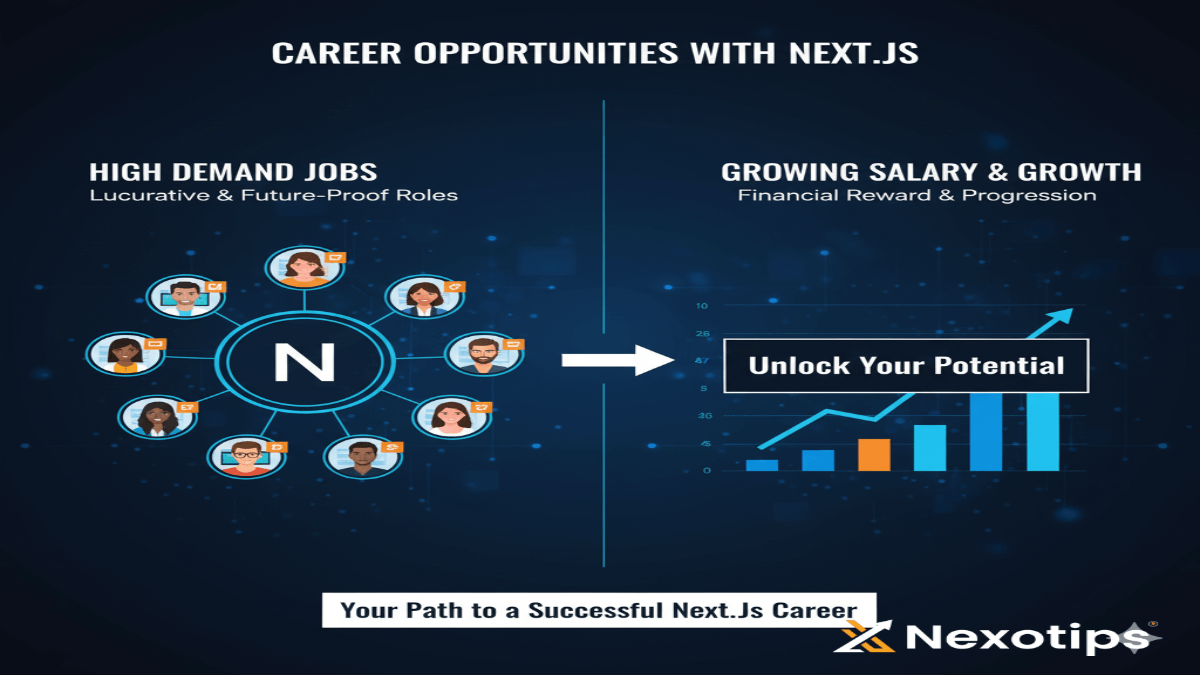
From a career perspective, Next.js is one of the most in-demand skills in the job market. Since it combines the power of React and server-side rendering, companies are constantly hiring developers who know it.
Angular jobs exist, but the growth rate isn’t as strong. Learning Next.js positions you for better salaries, more opportunities, and future-proof career growth.
10. Future-Proof Technology

Next.js is not standing still. Features like the App Router, Server Components, and Incremental Static Regeneration (ISR) keep pushing the boundaries of modern web development.
Angular evolves too, but Next.js aligns more closely with modern business needs—speed, scalability, SEO, and simplicity. Choosing Next.js means you’re investing in a framework built for the future.
Conclusion
Web development is full of choices, but some technologies make more sense than others. In 2025, Next.js stands out as the best framework to learn, especially when compared to Angular and other alternatives.
To summarize:
- It is simpler than Angular.
- It offers SEO and performance advantages out of the box.
- It supports full-stack development with API routes.
- It’s backed by a huge community and industry adoption.
- It provides better career opportunities and is future-ready.
At Nexotips Infotech, we’ve seen firsthand how Next.js helps businesses grow and how it empowers developers to create world-class applications. If you’re wondering what to learn in 2025, the answer is clear: learn this framework.
Explore the official Next.js Documentation to get started today
It’s not just another framework—it’s the future of web development.
Want to learn more? Check out our other coding-related blogs by Nexotips blog .
